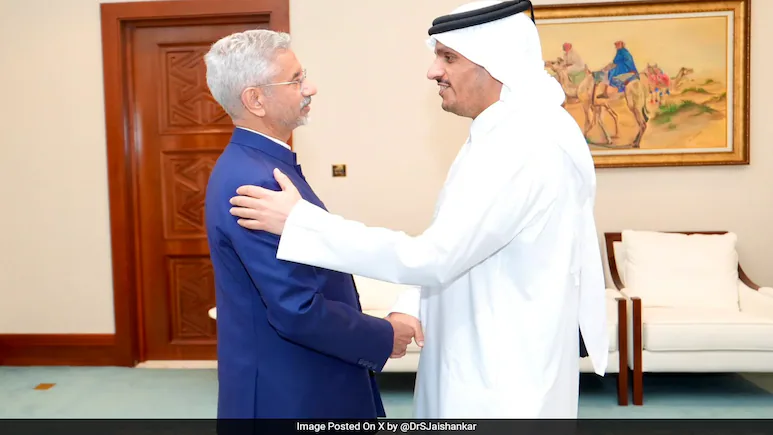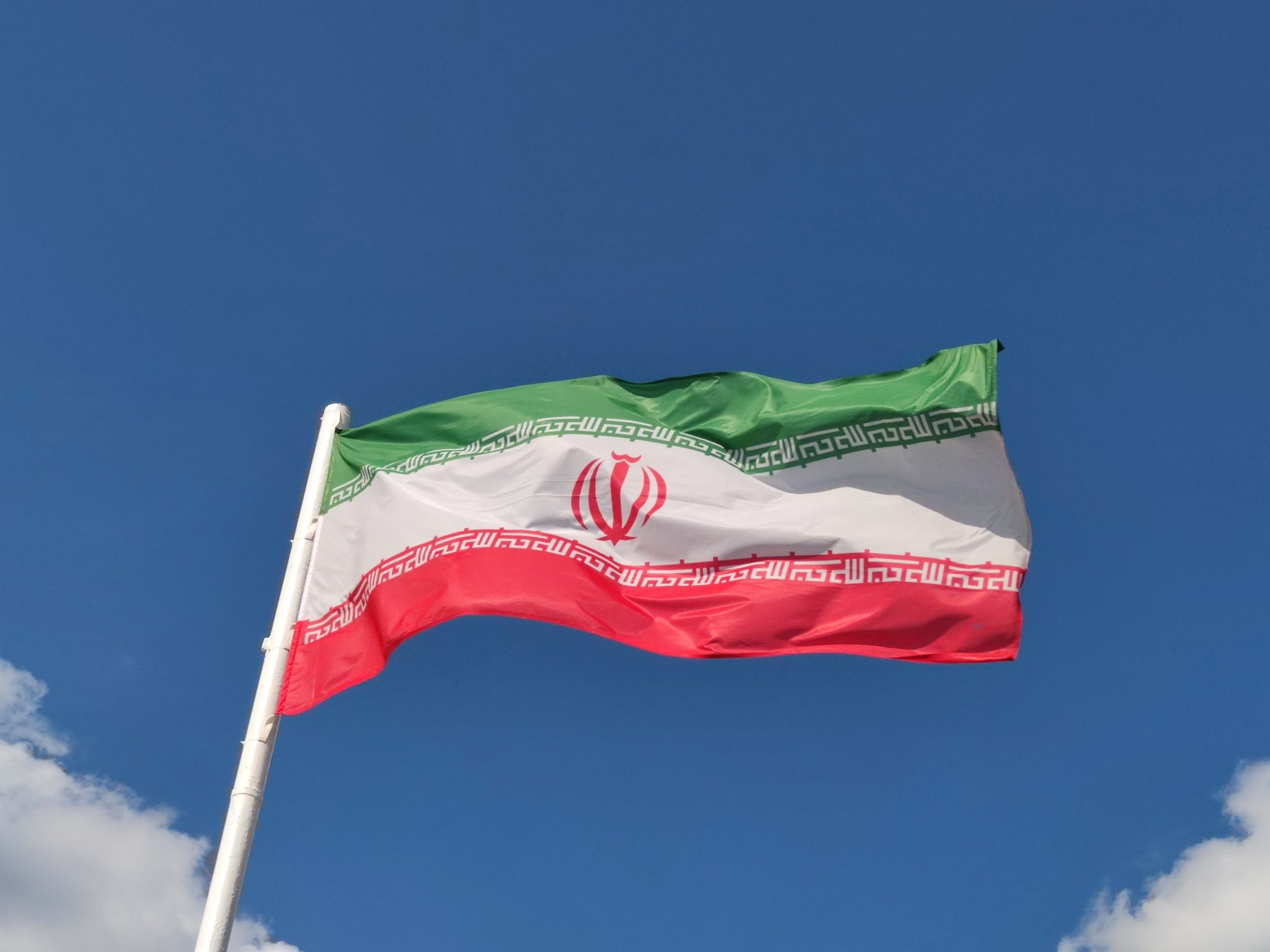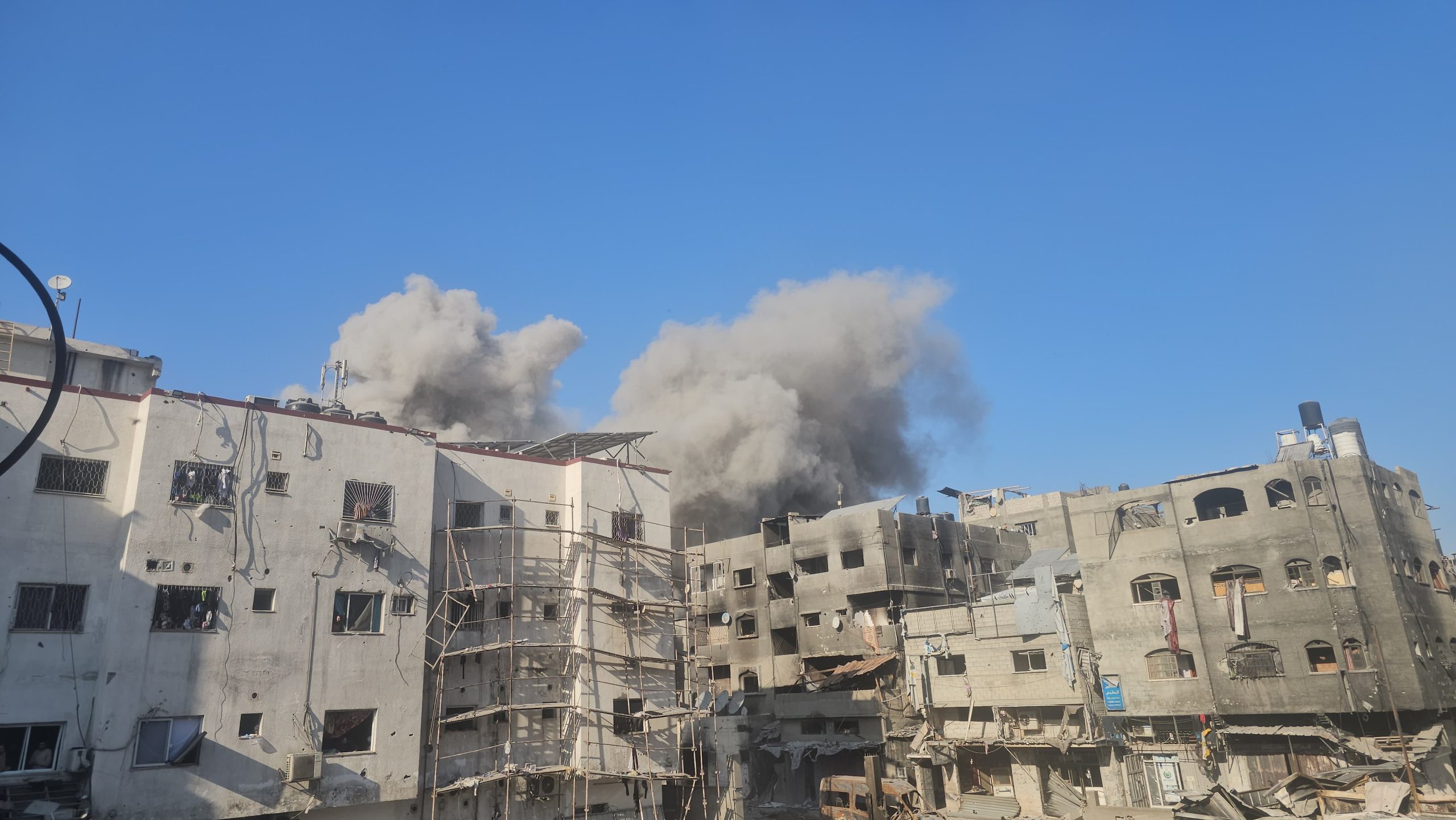Lebanon is in need of gas as it grapples with a worsening socio-economic situation that was made worse by the Covid-19 outbreak and 2020 Beirut Blast.
Qatar welcomed the US-led efforts on Sunday in mediating a solution to Lebanon’s ongoing maritime dispute with Israel, renewing its support for moves to ensure Beirut’s stability.
“Qatar welcomes the progress made in the mediation led by the United States to establish the maritime borders of Lebanon, which would enable Lebanon to explore and export LNG [liquified natural gas] from its territorial waters and enhance regional peace and security,” said Qatar’s foreign ministry in a statement.
The Gulf state has also previously expressed its willingness to support the crisis-hit nation in its energy crisis.
The border demarcation issue dates back to 2007, when Lebanon and Cyprus signed an agreement to delimit their maritime border.
The issue resurfaced in June after Israeli-contracted Energean Power vessel arrived at the disputed maritime border to develop its Karish gas field. This came as Israel aims to increase its gas production in light of a global energy crisis to support its European allies.
On Saturday, Lebanon received a draft US-brokered deal over the maritime border demarcation with Israel following months of mediation by Washington.
Lebanon’s parliament speaker Nabih Berri reportedly said that while the draft agreement is “positive”, it must be further revised, per a statement circulating by his office and published by Reuters.
Berri added that the 10-page draft deal “meets in principle the Lebanese demands” pertaining Beirut’s rejection of any agreement that could affect its border with Tel Aviv.
Analysts also believe a deal represents a glimmer of hope for Lebanon as it faces multiple crises, providing it with economic security.
“I think that this is one of the glimpses of hope or the light at the end of the tunnel that we can see,” said Dr. Joseph Bahout, Associate Professor of Practice at the American University of Beirut (AUB) told Doha News.
“It will probably help securitise the maritime border, but also the land border, which means we will have a peaceful environment for years and for decades mainly…Lebanon will be able to bag on certain resources for the future,” added Dr. Bahout.
The AUB professor noted that a deal would possibly pave the way for Lebanon to join a consortium of gas producing countries in the region.
In July, Hezbollah warned of a military escalation in response to the Israeli ship’s violation of its maritime territories. The movement vowed to prevent Israel from extracting hydrocarbons if it does not allow Lebanon to do so.
On Saturday, Hezbollah leader Sayyed Hassan Nasrallah said that the latest development in the border dispute file is “a very important step”.
Meanwhile, Israeli Prime Minister Yair Lapid said: “Just as we insisted from day one, the proposal fully preserves Israel’s national security interests, as well as our economic interests”.
Lapid added that Tel Aviv does not oppose the establishment of an additional gas field, hinting that the occupying state would “receive royalties” out of it.
Ongoing dispute
While Lebanon and Cyprus signed an agreement to delimit their maritime border in 2007, it was never ratified by Beirut, making it non-binding.
Israel and Cyprus then signed in 2010 an agreement over the same zones mentioned in the deal Beirut and Nicosia signed. Unlike Cyprus, Lebanon has no diplomatic ties with Israel and refuses to normalise with the Zionist state.
The occupying state of Israel had also waged war on Lebanon for several years.
During Lebanon’s 1975-1990 civil war, Israel launched cross-border strikes on the country and occupied the south for 22 years until 2000.
Then in 2006, Israel launched military operations on Lebanon for 34-days, with Hezbollah forcing the Israeli soldiers out. To date, Israeli warplanes often fly near Lebanon on various occasions.
In 2017, Lebanon inked a gas exploration and production agreement with various companies, including France’s Total.
The agreement brought back the dispute as the French company refused to begin operations on Block 9, in the disputed zone, until the maritime issue was resolved.
Lebanon is in need of gas as it grapples with a worsening socio-economic situation that was made worse by the Covid-19 outbreak and 2020 Beirut blast. The population has limited electricity access and scenes of long lines of cars stretching outside gas stations are a common sight.
In 2011, then-US envoy mediator between Beirut and Tel Aviv Frederic Hof presented a compromise to former Lebanese Prime Minister Najib Mikati to give Lebanon 55% of the area and the remaining 45% to Israel.
During the same year, Lebanon issued Decree 6433 to the UN to claim Line 23, which does not fall on the Karish field. To date, Israel maintains that the field is in its economic zone.
Following studies by the UK Hydrographic Office and Lebanese Army, Lebanon found it can claim an additional 1,430 square km of the area, known as Line 29.
This called for the amendment of the decree, approved last year by former caretaker Prime Minister Hasan Diab. To date, President Michel Aoun has not signed the amended document, facing criticism by Lebanese officials for not revisiting the claim.
Fearing new escalations, US mediator Amos Hochstein returned to the mediation table after stalled negotiations over the issue in 2020.







